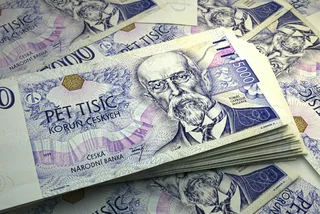Around the world, consumer price increases are hitting record highs and labor shortages are increasing, creating a favorable environment for employees to negotiate better salaries or seek higher-paying positions.
A new survey conducted by personnel consulting company Hays has revealed that two-thirds of professionals in the Czech Republic expect to bring home more money this year, while some employees are already earning more.
Sixty-nine percent of those who answered the survey said they've received or will receive pay raises or plan to look for a higher-paying job.
Breaking down the data, 16 percent of white-collar employees are already receiving higher wages; 27 percent expect a raise this year. In addition, 26 percent said they are in the midst of changing jobs and expect to land a new position on better financial terms.
Among the 400 Czech respondents to Hays' global survey, conducted over LinkedIn in April, only 31 percent of those polled said they did not expect to receive higher wages.
Forty-thousand respondents in skilled positions from other countries were polled.
"The Czech survey completely follows the world trend. … The same percentage of people, that is 31 percent, do not expect higher wages this year,” Sándor Bodnár, Hays director for the Czech Republic and Romania, said.
Globally, though, more people were uncertain. Some 12 percent were neutral and do not yet know what strategy they or their employer will adopt, he added.
Trainee Recruitment Consultant - French Team!

English Teacher Wanted in Prague

Do you intend to ask for a raise this year?
In general, Bodnár said employers are also dealing with inflation and may be reluctant to spend more money.
"Despite the difficult labor market situation, many employers are taking a more cautious approach, preferring individual increases instead of widespread wage increases, usually when recruiting a candidate for a role that is critical to the company's operations,” Bodnár said.
The average gross monthly wage in the Czech Republic was CZK 37,839 last year and in the fourth quarter of 2021 it reached CZK 40,135, according to the Czech Statistical Office (ČSÚ). For the whole year, wages rose by 6.1 percent compared to 2020. In 2021, consumer prices increased by 3.8 percent so wages in 2021 increased by 2.2 percent in real terms.
Did you know? For an employee in the Czech Republic to be able to maintain the same amount of purchasing power as they had last year, the employee would need a raise of 14.2 percent just to stay even.
Inflation is now much higher. The ČSÚ’s figures for April show that consumer prices, including food, energy, and housing, increased by 14.2 percent in comparison with last April. This was the most since December 1993, when year-on-year price growth reached 18.2 percent.
A project called Minimum Decent Wage has calculated that in the first quarter of 2002, a person would have to earn CZK 33,909 on average in the Czech Republic and CZK 39,974 in Prague to cover the expenses of an adult with a dependent, including leisure-time activities and saving for the future.
Thinking of asking for a raise in the Czech Republic? Read our expert tips on how to do so.












 Reading time: 2 minutes
Reading time: 2 minutes 



 Polish
Polish
 Italian
Italian

























